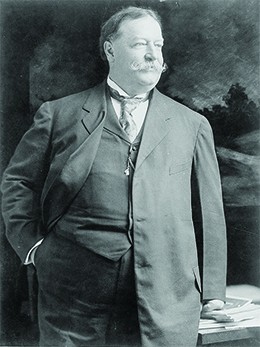Publicity Act of 1910 (aka Federal Corrupt Practices Act)

President William Howard Taft signed the Publicity Act of 1910 into law on June 25, 1910 requiring political parties and their committees to publicly disclose their campaign contributions and expenditures.
Public frustration with “machine politics” and the influence of wealthy donors, particularly corporations, had been growing. The Act was seen as a response to these concerns, aligning with broader reforms. Many appreciated the requirement that political parties disclose contributions and expenditures for federal elections. This was seen as a move toward fairness and openness in the democratic process.
Political elites who benefited from the existing system were less enthusiastic, although outright opposition was tempered by public demand for reform.
President Taft was an advocate for government transparency and accountability. In his 1910 State of the Union Address, delivered after signing the Publicity Act, Taft expressed support for the principle of disclosing campaign contributions, “the importance of a rigorous and honest enforcement of the laws regulating campaign contributions and expenditures cannot be exaggerated.” He emphasized that the public had a right to know who was funding political campaigns to prevent undue influence. Taft viewed disclosure laws like the Publicity Act as a means to restore public confidence in the electoral process and ensure that elections were conducted fairly.
While the Publicity Act was a significant step forward, Taft acknowledged further reforms might be necessary to strengthen campaign finance regulations and ensure compliance. In 1911, the Act was amended to extend its requirements to Senate candidates and primary elections, and to establish spending limits for campaigns. In his December 1911 State of the Union Address, Taft emphasized the importance of campaign finance reform to ensure public confidence in elections stating, “legislation should provide for both the restriction and the publicity of campaign funds in elections of Members of the House of Representatives and in the nomination and election of Senators and of the President.” This aligns with the objectives of the 1911 amendments, which required political committees to report contributions and expenditures in presidential and Senate elections.
Taft consistently argued for mechanisms to hold candidates and political parties accountable for their financial practices during campaigns, recognizing the public’s growing demand for clean government. Taft viewed unchecked campaign financing as a pathway to corruption. The 1911 amendments were designed to close loopholes and broaden the application of the original act to more federal elections. While Taft was not known for fiery rhetoric, his actions and public addresses consistently supported incremental reforms like this one.
